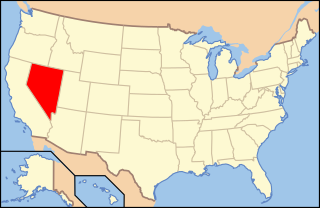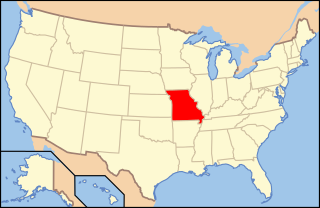A California domestic partnership is a legal relationship, analogous to marriage, created in 1999 to extend the rights and benefits of marriage to same-sex couples. It was extended to all opposite-sex couples as of January 1, 2016 and by January 1, 2020 to include new votes that updated SB-30 with more benefits and rights to California couples choosing domestic partnership before their wedding. California Governor Newsom signed into law on July 30, 2019.
Same-sex marriage in New Jersey has been legally recognized since October 21, 2013, the effective date of a trial court ruling invalidating the state's restriction of marriage to persons of different sexes. In September 2013, Mary C. Jacobson, Assignment Judge of the Mercer Vicinage of the Superior Court, ruled that as a result of the U.S. Supreme Court's June 2013 decision in United States v. Windsor, the Constitution of New Jersey requires the state to recognize same-sex marriages. The Windsor decision held that the federal government was required to provide the same benefits to same-sex couples who were married under state law as to other married couples. Therefore, the state court reasoned in Garden State Equality v. Dow that, because same-sex couples in New Jersey were limited to civil unions, which are not recognized as marriages under federal law, the state must permit civil marriage for same-sex couples. This ruling, in turn, relied on the 2006 decision of the New Jersey Supreme Court in Lewis v. Harris that the state was constitutionally required to afford the rights and benefits of marriage to same-sex couples. The Supreme Court had ordered the New Jersey Legislature to correct the constitutional violation, by permitting either same-sex marriage or civil unions with all the rights and benefits of marriage, within 180 days. In response, the Legislature passed a bill to legalize civil unions on December 21, 2006, which became effective on February 19, 2007.
In the United States, domestic partnership is a city-, county-, state-, or employer-recognized status that may be available to same-sex couples and, sometimes, opposite-sex couples. Although similar to marriage, a domestic partnership does not confer any of the myriad rights and responsibilities of marriage afforded to married couples by the federal government. Domestic partnerships in the United States are determined by each state or local jurisdiction, so there is no nationwide consistency on the rights, responsibilities, and benefits accorded domestic partners.
Same-sex marriage in Washington has been legally recognized since December 6, 2012. On February 13, 2012, Governor Christine Gregoire signed legislation that established full marriage rights for same-sex couples in the state of Washington. Opponents mounted a challenge that required voters to approve the statute at a referendum, which they did on November 6. The law took effect on December 6, and the first marriages were celebrated on December 9. Within a couple of days, more than 600 marriage licenses were issued to same-sex couples in King County alone.

Public opinion of same-sex marriage in the United States has changed dramatically since the late 1980s, and by the early 2020s an overwhelming majority of Americans approved of the legality of these marriages.
Same-sex marriage in Rhode Island has been legally recognized since August 1, 2013. The state had authorized a limited form of domestic partnerships from 2002 to 2011, and the formation of civil unions from 2011 until the state began recognizing same-sex marriages in 2013. Rhode Island was the last state in New England to legalize same-sex marriage.
Hungary has recognized registered partnerships since 1 July 2009, offering same-sex couples nearly all the rights and benefits of marriage. Unregistered cohabitation for same-sex couples was recognised and placed on equal footing with the unregistered cohabitation of different-sex couples in 1996. However, same-sex marriage is prohibited by the 2011 Constitution of Hungary, which took effect in January 2012.

Florida Amendment 2 is an amendment made to the Constitution of Florida in 2008. It added Article I, Section 27 to the constitution, which defines marriage as a union only between one man and one woman, and thus bans the creation of similar unions, such as civil unions or same-sex marriage.

Lesbian, gay, bisexual, and transgender (LGBT) persons in the U.S. state of Nevada enjoy most of the same rights as non-LGBT Nevadans. Same-sex marriage has been legal since October 8, 2014, due to the federal Ninth Circuit Court of Appeals ruling in Sevcik v. Sandoval. Same-sex couples may also enter a domestic partnership status that provides many of the same rights and responsibilities as marriage. However, domestic partners lack the same rights to medical coverage as their married counterparts and their parental rights are not as well defined. Same-sex couples are also allowed to adopt, and state law prohibits unfair discrimination on the basis of sexual orientation and gender identity, among other categories, in employment, housing and public accommodations. In addition, conversion therapy on minors is outlawed in the state.
As of 2015, all 50 U.S. states and the District of Columbia legally recognize and document same-sex relationships in some fashion, be it by same-sex marriage, civil union or domestic partnerships. Many counties and municipalities outside of these states also provide domestic partnership registries or civil unions which are not officially recognized by the laws of their states, are only valid and applicable within those counties, and are usually largely unaffected by state law regarding relationship recognition. In addition, many cities and counties continue to provide their own domestic partnership registries while their states also provide larger registries ; a couple can only maintain registration on one registry, requiring the couple to de-register from the state registry before registering with the county registry.
Same-sex marriage in South Carolina has been legal since a federal court order took effect on November 20, 2014. Another court ruling on November 18 had ordered the state to recognize same-sex marriages from other jurisdictions. Following the 2014 ruling of the Fourth Circuit Court of Appeals in Bostic v. Schaefer, which found Virginia's ban on same-sex marriage unconstitutional and set precedent on every state in the circuit, one judge accepted marriage license applications from same-sex couples until the South Carolina Supreme Court, in response to a request by the Attorney General, ordered him to stop. A federal district court ruled South Carolina's ban on same-sex marriage unconstitutional on November 12, with implementation of that decision stayed until noon on November 20. The first same-sex wedding ceremony was held on November 19.
Same-sex marriage in Pennsylvania has been legally recognized since May 20, 2014, when a U.S. federal district court judge ruled that the state's 1996 statutory ban on recognizing same-sex marriage was unconstitutional. Governor Tom Corbett announced the following day that he would not appeal the decision. Pennsylvania had previously prohibited the recognition of same-sex marriage by statute since 1996, but had never added such a ban to its State Constitution.
Same-sex marriage in Ohio has been legal since the U.S. Supreme Court's ruling in Obergefell v. Hodges, a landmark decision in which the court struck down Ohio's statutory and constitutional bans on same-sex marriage on June 26, 2015. The case was named after plaintiff Jim Obergefell, who sued the state of Ohio after officials refused to recognize his marriage on the death certificate of his husband. Same-sex marriages were performed in Ohio beginning shortly after the Supreme Court released its ruling, as local officials implemented the order.

LGBT residents in the U.S. state of Georgia enjoy most of the same rights and liberties as non-LGBT Georgians. LGBT rights in the state have been a recent occurrence, with most improvements occurring from the 2010s onward. Same-sex sexual activity has been legal since 1998, and same-sex marriage has been legal since 2015. In addition, the state's largest city Atlanta, has a vibrant LGBT community and holds the biggest Pride parade in the Southeast. The state's hate crime laws, effective since June 26, 2020, explicitly include sexual orientation.

Lesbian, gay, bisexual, transgender, and queer (LGBTQ) persons in the U.S. state of Missouri as of late have most of the same legal rights as non-LGBT persons have, but nonetheless face some legal challenges not experienced by other residents throughout the state, excluding St. Louis, Kansas City, and Columbia. Same-sex sexual activity is legal in Missouri.
The U.S. state of Texas issues marriage licenses to same-sex couples and recognizes those marriages when performed out-of-state. On June 26, 2015, the United States legalized same-sex marriage nationwide due to the U.S. Supreme Court's decision in Obergefell v. Hodges. Prior to the U.S. Supreme Court's ruling Article 1, Section 32, of the Texas Constitution provided that "Marriage in this state shall consist only of the union of one man and one woman," and "This state or a political subdivision of this state may not create or recognize any legal status identical or similar to marriage." This amendment and all related statutes have been ruled unconstitutional and unenforceable. Some cities and counties in the state recognize both same-sex and opposite-sex domestic partnerships.
Same-sex marriage in Tennessee has been legal since the U.S. Supreme Court ruling in Obergefell v. Hodges on June 26, 2015. Governor Bill Haslam quickly announced that the state would abide by the court's decision, and same-sex couples began to marry in Tennessee. Previously, Tennessee had banned same-sex marriage both by statute and its State Constitution.
Same-sex marriage in Virginia has been legal since October 6, 2014, following the decision of the U.S. Supreme Court not to hear an appeal of the Fourth Circuit Court of Appeals' ruling in Bostic v. Schaefer. Same-sex marriages subsequently began at 1:00 p.m. on October 6 after the Fourth Circuit issued its mandate, and since then Virginia has performed legal marriages of same-sex couples and recognized out-of-state same-sex marriages. Previously, the state had passed a statute prohibiting same-sex marriage in 1975, and further restrictions were added in 1997 and 2004, which made "void and unenforceable" any arrangements between same-sex couples bestowing the "privileges or obligations of marriage". Voters approved an amendment to the Constitution of Virginia reinforcing the existing laws in 2006. On January 14, 2014, a U.S. district court judge ruled in Bostic that Virginia's statutory and constitutional ban on the state recognition of same-sex marriages were unconstitutional, a decision upheld by the Fourth Circuit on July 28, 2014.

The 2016 Florida Democratic presidential primary took place on March 15 in the U.S. state of Florida as one of the Democratic Party's primaries ahead of the 2016 presidential election.
Public opinion of same-sex marriage in Australia has shifted from 38% support in 2004 to consistent majority support of 61% in 2017.






